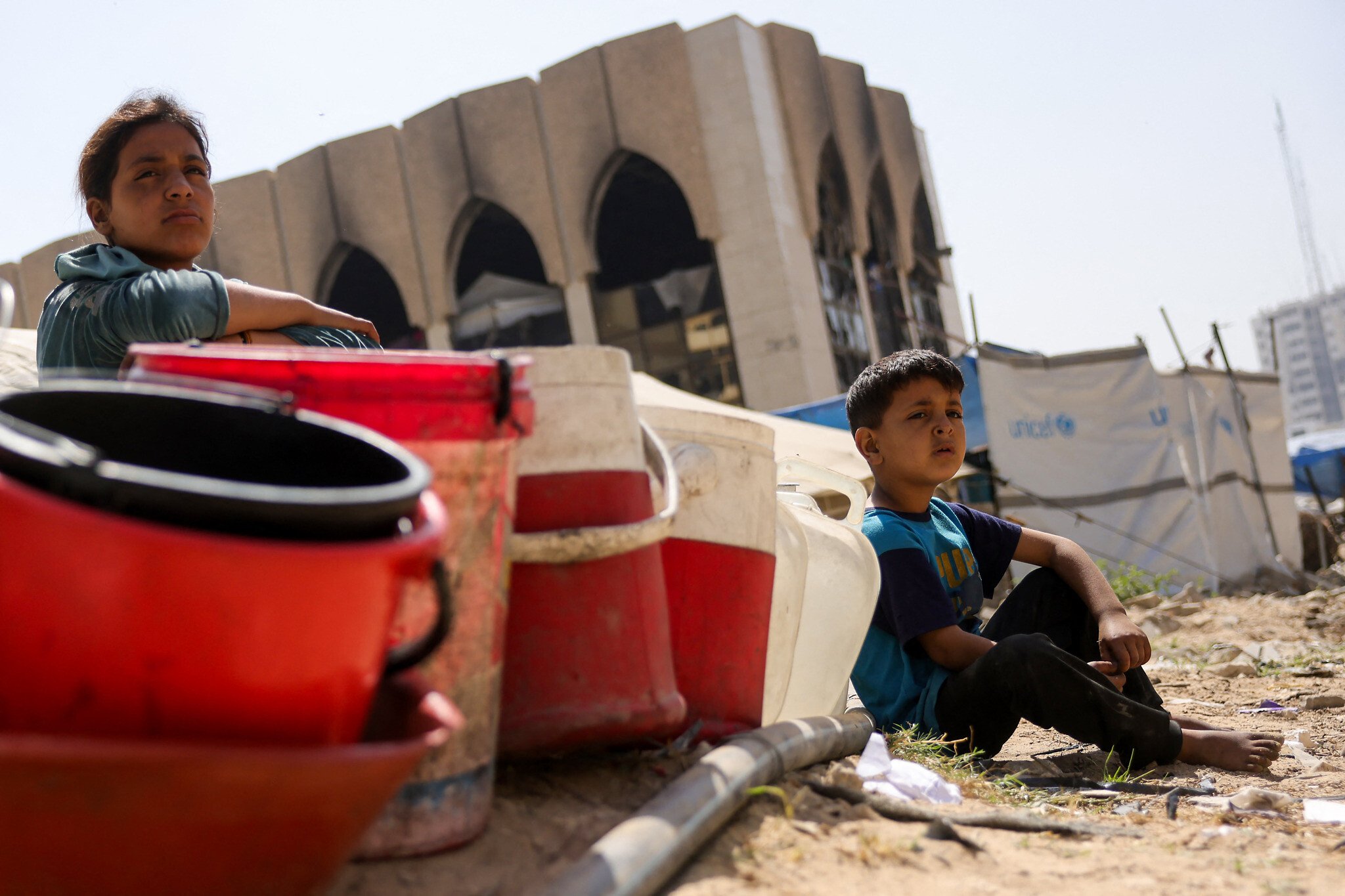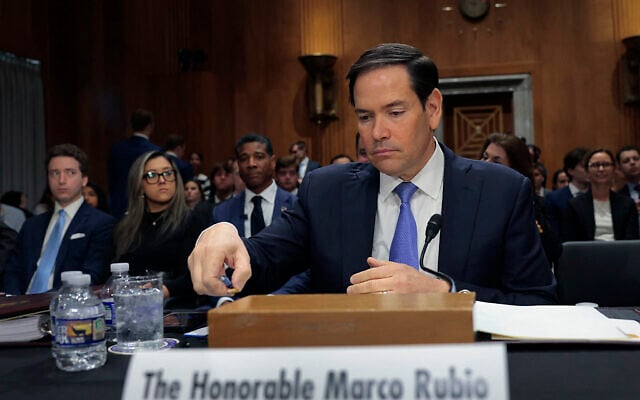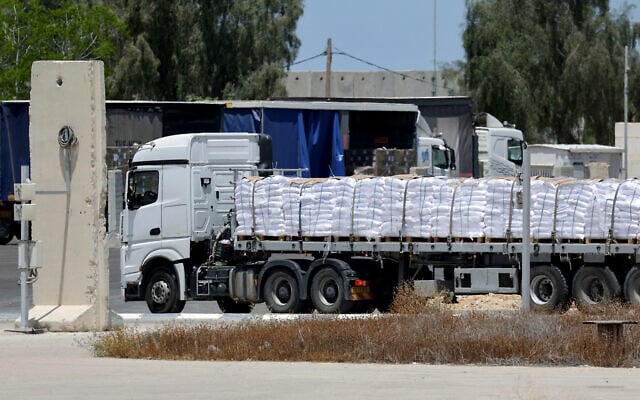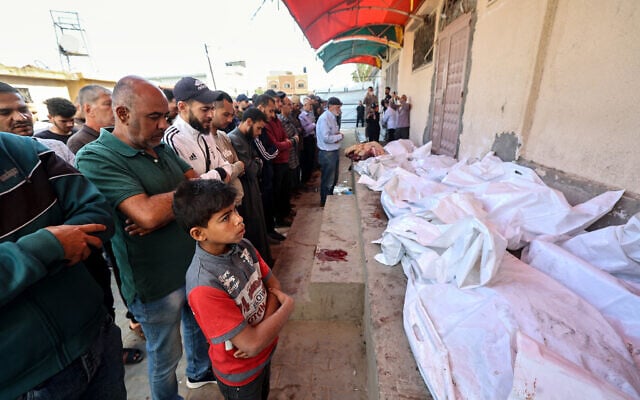



The US is “pleased” by Israel’s decision to lift its 78-day blockade on humanitarian assistance for Gaza but recognizes that the small handful of trucks that have entered the Strip so far are insufficient, US Secretary of State Marco Rubio said on Tuesday.
Testifying before the Senate Foreign Relations Committee, Rubio said it was his understanding that another 100 aid trucks — if not more — would be entering Gaza in the coming days.
After five trucks entered Gaza on Monday for the first time in over two-and-a-half months, Israeli authorities announced Tuesday, shortly after Rubio’s testimony, that another 93 trucks had entered the Strip earlier that day.
The Defense Ministry’s Coordinator of Government Activities in the Territories (COGAT) said Tuesday’s trucks included “flour for bakeries, food for babies, medical equipment and pharmaceutical drugs.”
Washington has gradually raised its discomfort over the humanitarian situation in Gaza, with US President Donald Trump himself multiple times lamenting that Palestinians there are starving. Prime Minister Benjamin Netanyahu acknowledged earlier this week that US pressure played a role in his decision to lift the aid blockade.
Rubio told the congressional panel that he had recently met with representatives from the World Food Programme to discuss efforts to ramp up the distribution of aid into Gaza.
A Western diplomat familiar with the matter told The Times of Israel earlier this month that the Trump administration has threatened to cut its funds to WFP if the organization doesn’t cooperate with a new Israeli-backed Gaza aid initiative.
The initiative is being managed by a new group called the Gaza Humanitarian Foundation, which says it will begin operating in the Strip by the end of the month. However, it conditioned its operation on Israel allowing aid into the strip through existing mechanisms in the interim.
WFP and other aid groups have pushed back against the new initiative, arguing that it will force the mass displacement of Gazans to southern Gaza — where the IDF is establishing a small handful of aid distribution centers — and includes other strict Israeli criteria that international organizations claim don’t allow them to meet the gravity of the humanitarian crisis.
Rubio told the Senate committee that the US wants the war in Gaza to end, “hopefully with the elimination of Hamas.”
“Because the people of Gaza deserve a more prosperous, peaceful future, which they’ll never have as long as Hamas exists,” he added.
Asked about Israel’s current military strategy that aims to flatten the vast majority of Gazan buildings in order to reoccupy and indefinitely hold onto the Strip, Rubio claimed he didn’t believe that is the case, adding that Israel is “targeting elements of Hamas.”
He asserted that Hamas has been an “impediment” to multiple hostage deals in the past, with the terror group’s Gaza-based leadership overruling its abroad negotiators after the latter had reached agreements with mediators.
Rubio confirmed that the US has asked countries in the region and beyond whether they’d be willing to temporarily take in Gazans who are interested in leaving due to the ongoing war. However, he rejected the characterization of it as a “deportation” initiative.
Rubio was pressed whether the option placed before Gazans to leave can really be considered “voluntary” if Israel is cutting off aid and razing almost all of the structures in the Strip, while certain senior ministers pledge that Israel will remain there permanently.
“You don’t want people trapped there… They may want to live there in the future, but right now, they can’t… [so] we’ve asked countries preliminarily whether they would be open to accepting people — not as a permanent situation but as a bridge toward reconstruction,” Rubio responded.
Asked whether one of the countries approached was Libya, which the US is reportedly hoping will take in one million Gazans, Rubio said that he’s not aware of such discussions.
To date, no countries have come forward, as Israel has refused to publicly commit to allowing those who leave the ability to return and as coalition members claim the plan is for Israel to establish settlements in the Strip where Palestinian towns once stood.
Rubio later asserted that the Trump administration is still interested in brokering a normalization agreement between Saudi Arabia and Israel, but “the Saudis are the ones [who] have expressed their inability to move forward on it so long as the conflict is happening in Gaza.”
Riyadh has also made clear that it won’t normalize relations with Israel absent Jerusalem agreeing to allow for the establishment of an irreversible, time-bound pathway to a future Palestinian state, which Netanyahu has vowed to oppose.
Trump said while in Riyadh last week that he hopes Saudi Arabia will soon enter the Abraham Accords, but recognized that they will do it at their own time.



